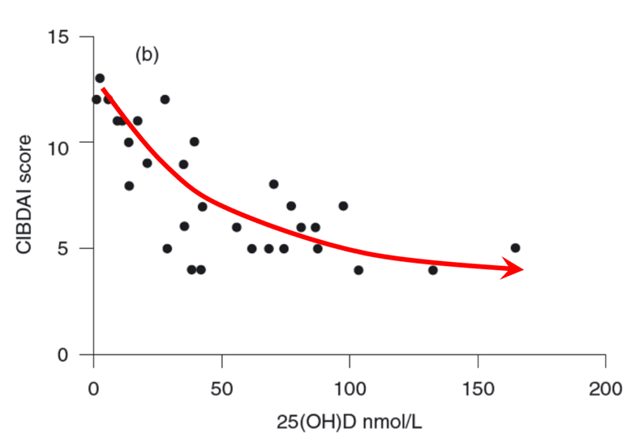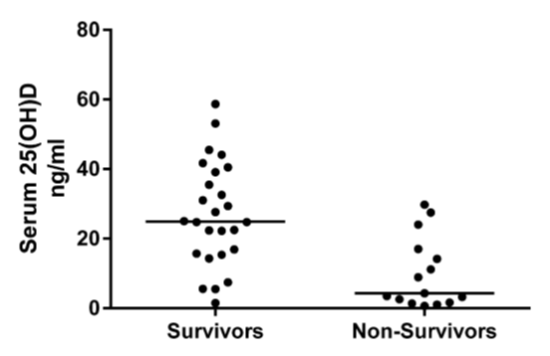
Inflammatory bowel disease (IBD), an auto-immune disorder, is characterized by chronic intestinal inflammation and can advance to protein-losing enteropathy (PLE), an often fatal disease. Dogs with IBD are often low in vitamin D stores (25VitD) due to inappetence and/or impaired absorption.

Studies (1,2) have found a correlation between the level of 25VitD and the canine inflammatory bowel disease activity index (CABDAI).

Prognostically, studies (2,4) have shown 25VitD levels can predict outcomes in PLE dogs.
Vitamin D, transformed into the powerful hormone calcitriol, is known to modulate both the innate and acquired immune responses via effects on monocytes, macrophages, dendritic cells, and lymphocytes. The effect of vitamin D on the immune sytem has been shown (3) to significantly decrease proinflammatory mediators:
- Neutrophil count
- Monocyte count
- IL-2
- IL-8
- TNF-alpha
Vitamin D insufficiency is commonly found in dogs consuming a wide range of commercial food (5) and is exacerbated by age, neuter status, disease, and medication, warranting annual testing and D3 supplementation (as needed).
References:
- Gow, A (2011) Hypovitaminosis D in dogs with inflammatory bowel disease and hypoalbuminaemia. BSAVA
- Titmarsh, H (2015) Association of vitamin D status and clinical outcome in dogs with a chronic enteropathy. J Vet Intern Med
- Titmarsh, H (2015) Low vitamin D status is associated with systemic and gastrointestinal inflammation in dogs with a chronic enteropathy. PLOS one
- Allenspach, K (2017) Hypovitaminosis D is associated with negative outcome in dogs with protein losing enteropathy: a retrospective study of 43 cases. BMC Vet Res
- Sharp, C (2015) The effect of diet on serum 25-hydroxyvitamin D concentrations in dogs. BMC Res Notes
